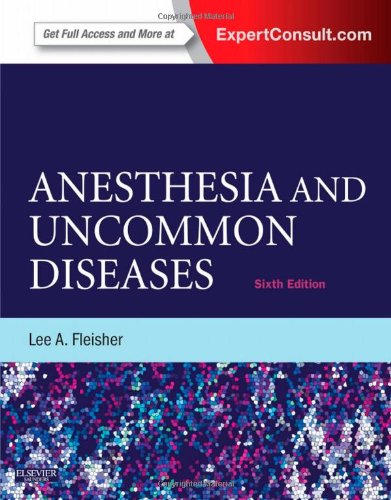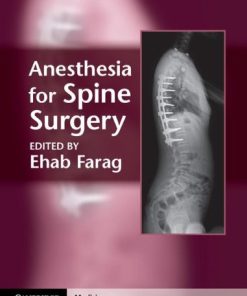Description
“Anesthesia and Uncommon Diseases” is a topic of interest in the field of anesthesiology. This concept refers to the unique challenges and considerations that anesthesia providers encounter when caring for patients with rare or uncommon medical conditions. These conditions may not be frequently encountered in routine clinical practice, making them a subject of special attention and study within the field of anesthesia. Here are key points related to anesthesia and uncommon diseases:
1. Varied Patient Population:
- Anesthesia providers may encounter patients with a wide range of rare and unusual medical conditions. These conditions can affect any system or organ in the body.
2. Limited Clinical Experience:
- Anesthesia providers may have limited experience or exposure to patients with these uncommon diseases due to their rarity.
3. Preoperative Assessment:
- Anesthesia providers must conduct thorough preoperative assessments to understand the unique medical issues and potential anesthetic challenges associated with these conditions.
4. Tailored Anesthetic Plans:
- Anesthetic plans for patients with uncommon diseases need to be individualized and based on a comprehensive understanding of the patient’s condition.
5. Multidisciplinary Approach:
- Collaboration with specialists from various medical disciplines is often essential in managing patients with rare diseases, as they may require input from experts in genetics, rare disease research, and specific organ system specialists.
6. Informed Consent:
- Providing patients and their families with clear and detailed information about the anesthesia plan, potential risks, and expected outcomes is crucial, given the unique nature of their conditions.
7. Special Monitoring:
- Monitoring during anesthesia may need to be tailored to address the specific needs of patients with uncommon diseases. This might include specialized equipment or additional vigilance.
8. Anesthetic Drug Considerations:
- Anesthesia providers must carefully consider the choice and dosage of anesthetic drugs, as patients with uncommon diseases may have altered drug metabolism or sensitivity.
9. Emergency Preparedness:
- Anesthesia providers should be well-prepared to manage potential complications related to the rare diseases they encounter and have contingency plans in place.
10. Advances in Knowledge: – Ongoing research and advances in medical knowledge are essential for anesthesia providers to stay informed about the latest developments related to rare diseases and their management.
11. Case-Based Learning: – Case studies and real-life patient scenarios are valuable tools for anesthesia providers to learn how to manage rare diseases effectively.
12. Ethical Considerations: – Ethical considerations may arise when caring for patients with rare diseases, such as balancing the risks and benefits of surgical and anesthetic interventions.
Anesthesia and uncommon diseases require a high level of expertise, adaptability, and a commitment to providing the best care for patients facing unique medical challenges. Staying current with the latest research and collaborating with experts in the field are essential for anesthesia providers who encounter such cases.





Reviews
There are no reviews yet.